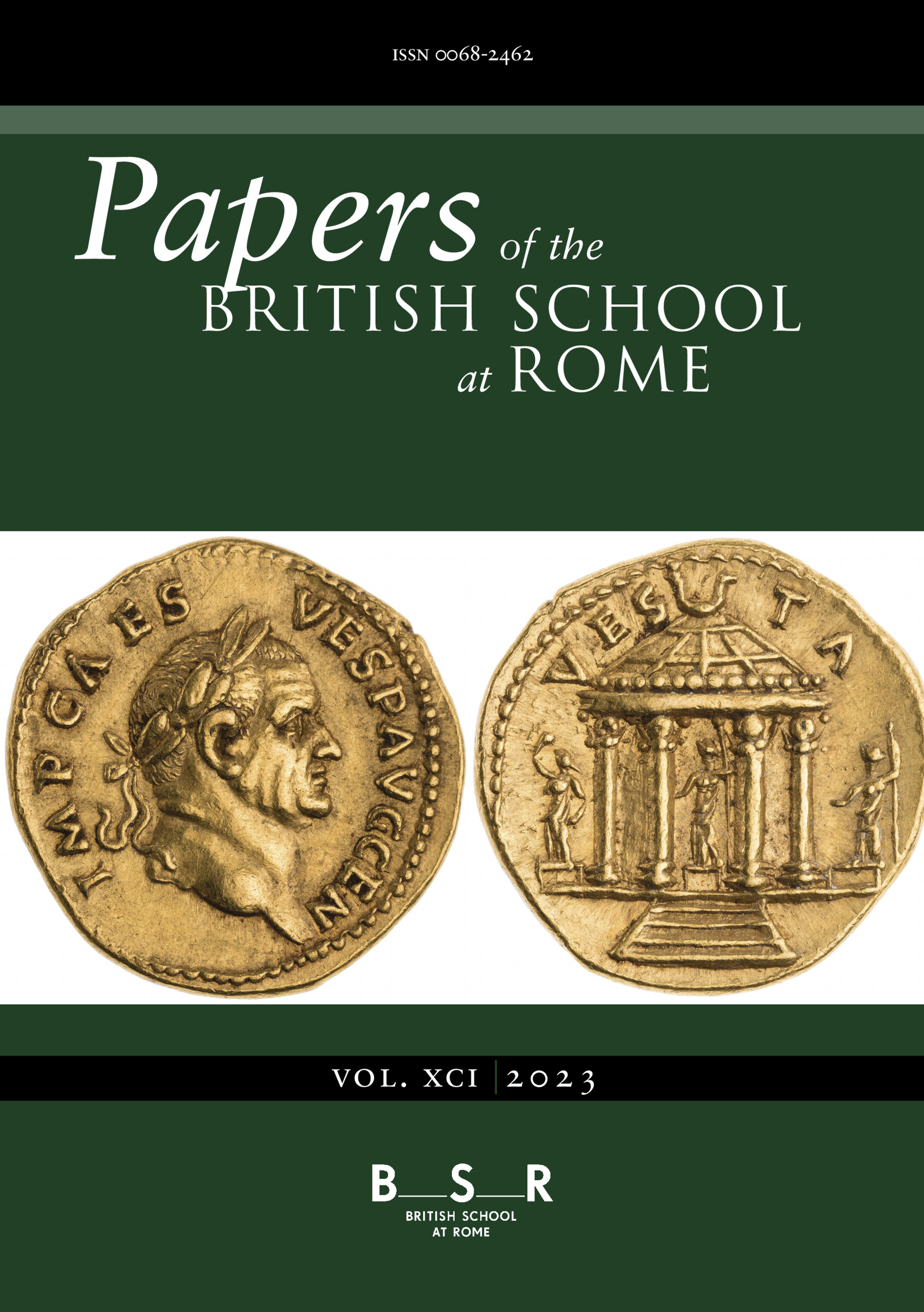It was a great honour to be the recipient of the inaugural Senior Associate Fellowship (2021–2). I applied to the new scheme as I was keen to explore how a non-residential association with the British School at Rome could help me to complete a section of Rome-based research that was needed for my current monograph project. I also wanted to connect with the vibrant community of artists and scholars resident at the BSR in order to broaden out my own ideas and horizons: after two periods of lockdown during the COVID-19 pandemic, the thought of in-person conversations and events was incredibly appealing. Lingering COVID regulations, post-Brexit visa restrictions, family caring responsibilities and other academic duties (including a visiting professorship at the University of Pavia) all meant that I was unable to visit the BSR as often as I had envisaged when I drafted my application the year before. When I did manage to engage with the infrastructure and the community, however, I found both experiences to be extremely rewarding.
My research in Rome formed part of my third book project, entitled Curating Worlds: Museum Practices in World Literature. The project identifies the collection, curation and display of objects as a site for the radical retelling of histories of empire, war, borders and mobility, using acclaimed world literature novels by Daša Drndić (Trieste), Valeria Luiselli (Lost Children Archive), Maaza Mengiste (The Shadow King), Orhan Pamuk (The Museum of Innocence), Maria Stepanova (In Memory of Memory) and Olga Tokarczuk (Flights) to form a primary corpus of what I term ‘museum-novels’. These works collage together literary, archival and journalistic sources, traces of visual and material culture, song and photography, and in so doing, they function explicitly as narrative archives on display. They start with inventories of content, and their wayward collection of objects demands deep reflection on what textual purpose their accumulation serves. As works of fiction, they also each supplement the material notion of the object collection with a sense of creative fabulation. This is an intimate, imaginative way of archiving, which signals new directions in potential retellings of historical and contemporary moments alike. Individual chapters in the book focus on key museum practices (such as collecting, curation, storage, display, conservation and deaccession) as they are articulated in literary form in the museum-novels under examination.
Whilst in Rome, I focused my attention on the chapter which reads practices of restitution through a juxtaposition of Maaza Mengiste's 2019 novel, The Shadow King, with an installation of colonial objects recently taken out of storage in Rome's Museo delle Civiltà. This installation, entitled Depositi Aperti [Open Storage], is a precursor to the official opening of the new Museo Italo Africano ‘Ilaria Alpi’. My visits to Depositi Aperti and the rest of the Museo delle Civiltà were facilitated for me by staff at the BSR, and constituted a fundamental step towards my being able to conclude the chapter in question, and the volume as a whole. The modality of the object displays in Depositi Aperti allowed me to think through critical questions of care and repair, and how museums can effectively engage with live debates around restitution and decolonization. The book manuscript is now complete and under contract with Northwestern University Press, where it is scheduled for publication in autumn 2024.


